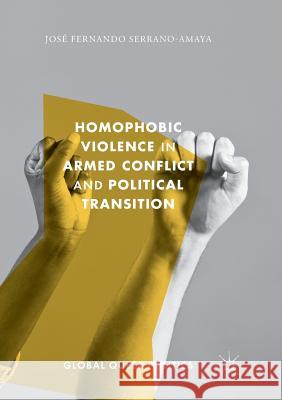Homophobic Violence in Armed Conflict and Political Transition » książka
topmenu
Homophobic Violence in Armed Conflict and Political Transition
ISBN-13: 9783319868356 / Angielski / Miękka / 2018 / 186 str.
Kategorie BISAC:
Wydawca:
Palgrave MacMillan
Seria wydawnicza:
Język:
Angielski
ISBN-13:
9783319868356
Rok wydania:
2018
Wydanie:
Softcover Repri
Ilość stron:
186
Waga:
0.26 kg
Wymiary:
21.01 x 14.81 x 1.14
Oprawa:
Miękka
Wolumenów:
01
Dodatkowe informacje:
Wydanie ilustrowane











